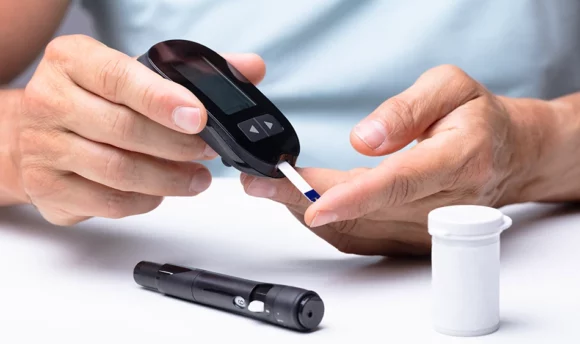Signs of Ketosis: What to Know for a Keto Diet
Reaching ketosis might take 3 days or even more. What signs you should look for?

The ketogenic diet has become all the rage for people looking to help sustain weight loss.
For many, this low-carb diet encourages burning fat, increased energy levels, and even reduced blood sugar.
How do you know you’re doing it right? The body goes through a metabolic state called ketosis. It’s important to know the signs so you can adjust your dietary changes as needed.
Let’s take a look at the signs of ketosis.
9 Signs of Ketosis: Do You Know Them All?
So, how do you know you’re in ketosis? There are some key ketosis symptoms you want to keep an eye out for. Some are less pleasant than others, but all are easily manageable!
#1 Fatigue and dizziness
One of the first signs and symptoms that you’re in ketosis is feeling more fatigued than usual, and maybe even some mild dizziness. This is because your body is getting used to a new energy source – fat.
#2 Increased thirst and dry mouth
Many people report that they’re much more thirsty after their body enters ketosis, followed quickly by a dry mouth. Make sure to stay hydrated while your body gets used to this new metabolic state.
#3 Keto breath
We release spent ketones through our breath. One of those ketones happens to be acetone. This gives people a metallic or nail polish remover smell to their breath. Don’t worry, it goes away after a week or so!
#4 Mental clarity
Once you’re in nutritional ketosis, you’re probably going to be able to think more clearly, make quicker decisions, and have more energy. If you suddenly feel like you’ve got more clarity lately, you might be in ketosis!
#5 Weight loss
The first thing you’ll notice in the first week or so of a keto diet is the sudden loss of water weight. After that, you’ll most likely find that you lose weight at a rate of 1 to 2 pounds per week, which is actually an expert-recommended healthy weight loss.
#6 Decreased appetite
Once you’re in ketosis, you won’t have the same amount of sugar cravings or hunger pangs that you would otherwise. This will help you eat fewer calories and is generally a positive sign of ketosis.
#7 Frequent urination
Feel like you need to go to the bathroom a little more often? This is a pretty normal side effect of ketosis. Glycogen reserves are released during ketosis, and glycogen often uses up water. So, you have more water in your body, thus more urination.
#8 Lack of sleep
After your body gets used to burning ketones for energy, you might find that you wake up more easily and have a little more trouble falling asleep. This is because your body is constantly burning fat for energy. Thankfully, your body will soon adjust and make sleeping easier.
#9 Muscle cramps
One of the less pleasant ketosis symptoms is muscle cramps. You may start feeling this after exercise. Make sure to take it easy and give yourself time to rest and recover the first few weeks of ketosis.
What Is Ketosis?
Our bodies love carbohydrates. They’re the primary energy source for our bodies. The basis of a ketogenic diet, however, is to shift the body’s main energy source from carbohydrates to fat. This is done through a process called ketosis.
When you starve your body of carbs, it searches for new ways to keep you energized. So, your body starts burning stored body fat, then starts producing ketones.
After ketone production begins, our bodies then begin using burning ketones as their new energy source.
This is how ketogenic diets lead to weight loss. Rather than using carbs, our bodies use fat which eventually encourages losing weight. This process is entirely natural and often happens during vigorous exercise or times of fasting, as well.
How to Get Into Ketosis?
There are several ways to encourage your body to enter ketosis. Of course, the first is to make sure you’re eating a high-fat diet with very few carbs. Carb consumption is an easy way to knock yourself right out of ketosis.
Secondly, increase your physical activity. While a very low carbohydrate diet will force your body to look for new sources of energy, working out will help deplete any carbs leftover in your body.
Fasting for short periods of time can also help encourage your body into ketosis. Again, this works by letting your body use up all of its leftover carbs. Many people combine a ketogenic diet with intermittent fasting to get the best results.
Testing your ketone levels can help determine whether or not you’re in ketosis. You can test your urine, breath, or blood in order to get an accurate reading of your ketogenic level. With accurate tests, you can make the adjustments needed to stay in ketosis.
How Long Does It Take to Get Into Ketosis?
Most people can reach ketosis within 3 to 4 days. For others, it can take up to two weeks to get into steady ketosis.
How long it takes to get into ketosis varies from person to person. It depends on your diet, activity level, and overall health.
A Word From Nutritionist
When you take the plunge into the ketogenic diet lifestyle, you’ll face all kinds of new changes. While there are plenty of health benefits of keeping your body in ketosis, there are also some unpleasant side effects.
Many of these symptoms can be exacerbated by nutrient deficiencies, such as not having enough protein, not enough fat, or too many carbs. After the initial adaptation phase, all of the unpleasant symptoms dissipate, leaving you with just the beneficial signs of ketosis.
Not everyone is suited to a ketogenic diet, however. If you’re pregnant or breastfeeding, you want to avoid the ketogenic diet. If you have kidney or liver damage, gallstones, or type 1 diabetes, you should also avoid the keto diet.
If you’re looking for rapid weight loss, you should know that the quickest weight loss only happens when your body drops water weight. After that, safe guidelines dictate 1 to 2 pounds per week.
Conclusion
Ketosis is a process that encourages your body to go from using carbs for energy to using fat stores, which, in turn, promotes fat loss, blood sugar control, and other benefits. When you enter ketosis, your body lets you know through various symptoms.
What are the signs of ketosis? Some are much more beneficial: less brain fog, losing weight, and decreased appetite. However, the less-than-fun symptoms like bad breath, fatigue, and lack of sleep are only temporary and will fade as your body adjusts.

















































 Select your language:
Select your language: 








